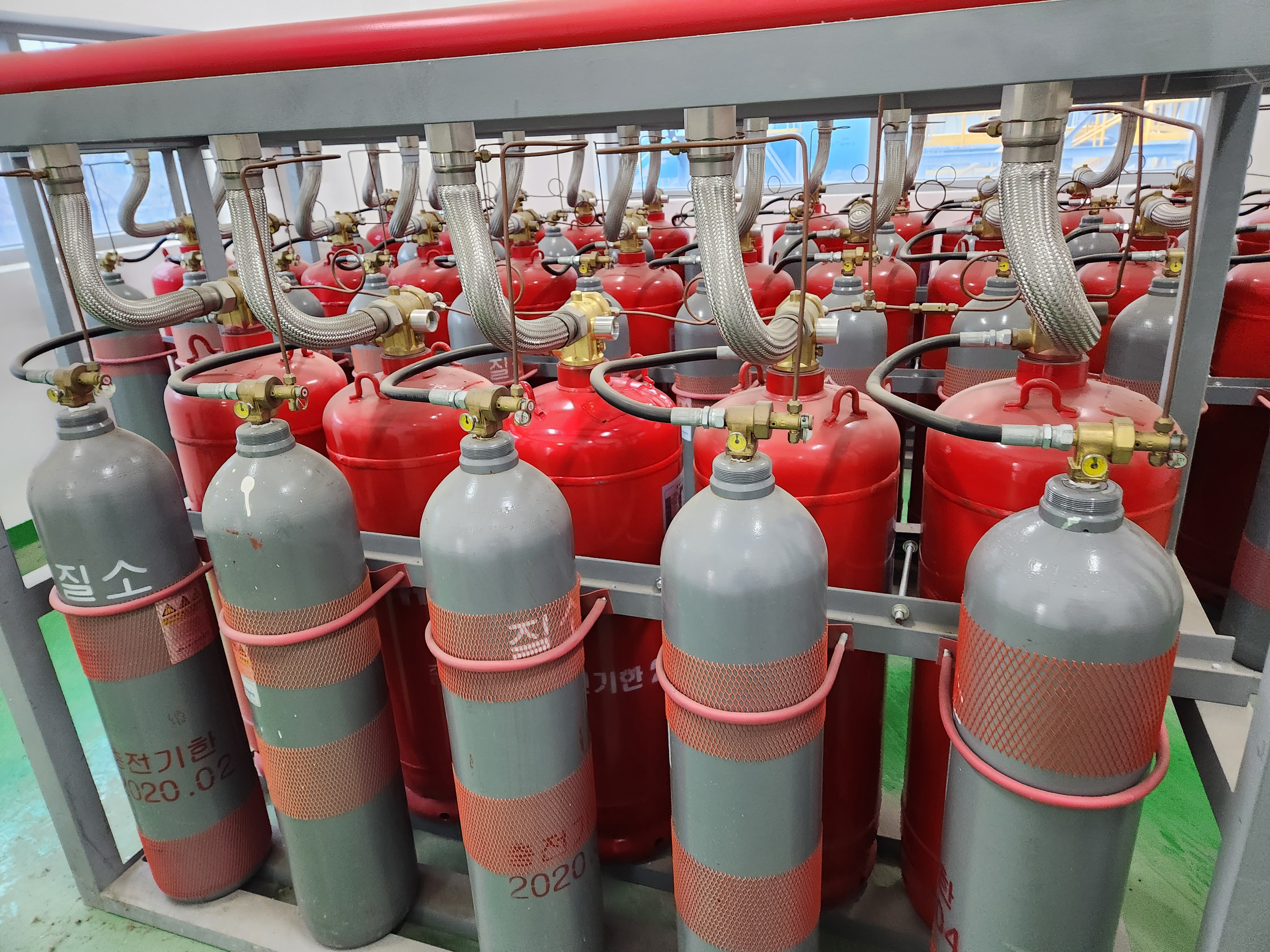728x90
COMPRESSED GAS CYLINDERS
BACKGROUND INFORMATION
Many thousands of people safely use compressed gases cylinders for many different purposes. The safety record on the use of cylinders is very good but as with all activities familiarity breeds contempt. The energy stored in the cylinders which makes them so useful can and has if abused lead to fatal consequences. Following the correct procedures is paramount when using compressed gases. Only competent authorized persons should use compressed gases.

HAZARDS
- Flammable and highly flammable gases that from explosive mixtures with air.
- Damaged cylinders that leak, causing a lack of oxygen or explosive mixture.
- Contact with the liquefied gases can cause skin burns or severely damage eyes.
- Heating the cylinders causing them to burst or explode.
- Heavy cylindeers that may cause physical injury.

HEALTH AND SAFETY POINTS
- There is no such thing as an empty cylinder, there is always residual gas, so treat all cylinders as full and handle carefully. Acetylene cylinders always contain Acetone.
- Cylinders must always be secure and upright when in use and in storage this is imperative for Acetylene.
- When moving cylinders use a carrier or trolley or get help if this is impractical.
- Take care not to damage valves and fittings, they should not be used for lifting or carrying.
- Look after cylinders: they should be kept out of direct sunlight, especially in summer.
- Keep all valve, fittings and equipment free from dirt that will make inspection more difficult and might damage connection seatings, leading to leaks.
- Always examine and inspect hoses, gauges, connectors and equipment before use and check for leaks after assembly.
- Do not allow any oil or grease to come into contact with Oxygen equipment as it may exploded due to chemical reaction.
- Acetylene will form explosive compounds with copper, silver and mercury, never use copper pipe to extend hoses or fittings made with alloys of these materials.
- Never use cutting/burning equipment unless it is fitted with both flash back arrestors and check valves.
- Open and close valves slowly and carefully never use excessive force, it is not needed and will lead to damage which will make it more difficult to shut down in future.
- Use gloves to protect hands but make sure they are free from oil and grease.
- Look after the equipment when in use; protect hoses from damage from traffic.
- MAke sure that cylinders will not be pulled or knocked over either by yourself or others.
- Always ensure that a suitable fire extinguisher is available during hot work.
- Check if a permit to work is required and if so comply with all the requirements.
- Always follow the correct start up and shut down procedures and never leave equipment in an unsafe condition, always close cylinder valves and vent pipework when finished.
- Know the emergency procedures, remember in case of fire involving a cylinder call the fire brigade first, then evacuate the area then, only if it is safe to do so, cool the cylinders with water.
- Always ensure adequate ventilation is available where flammable gases are stored or used and Do Not Smoke!
728x90
QUSTIONS
- What cylinder and equipment must be kept free from oil and grease?
- What action must be taken in case of fire?
- In what position should cylinders be in use? And how should they be kept there?
- What should be done after connecting up equipment and before use?

SAFETY REMINDER
Use sylinders and their contects with care. They are a convenient and safe source of energy, but abused they can become a lethal explosive!
728x90
'Safety > Safety Talk' 카테고리의 다른 글
| TRANSPORT OF GAS CYLINDERS (0) | 2023.02.20 |
|---|---|
| HIGHLY FLAMMABLE LIQUIDS (0) | 2023.02.16 |
| EAR PROTECTION (0) | 2023.02.15 |
| HAND PROTECTION (0) | 2023.02.14 |
| WORKING DRESS (0) | 2023.02.14 |




댓글